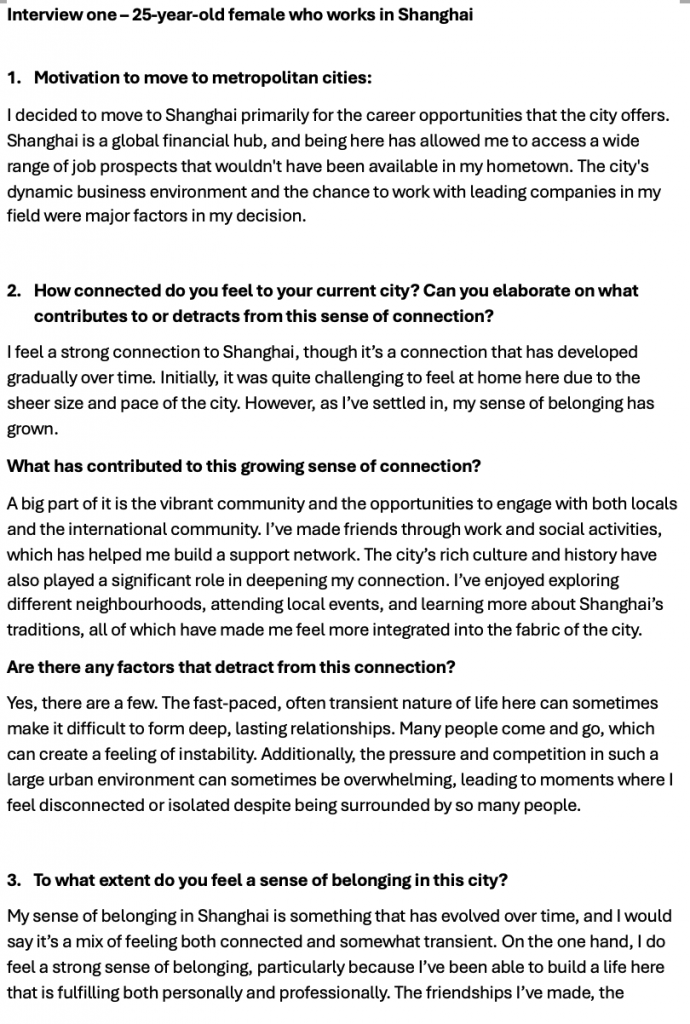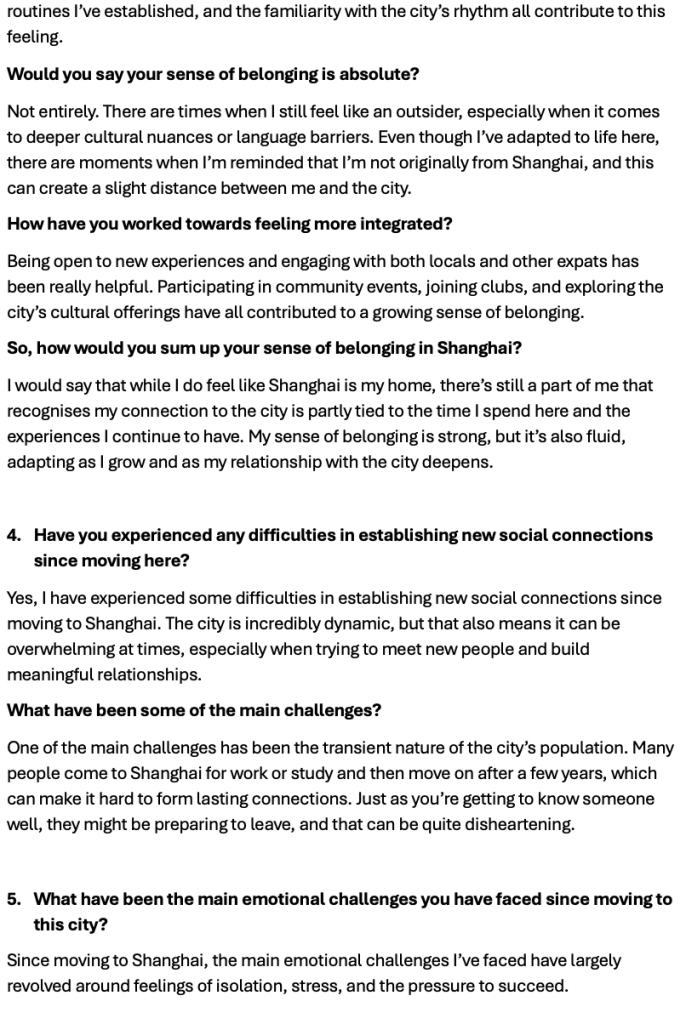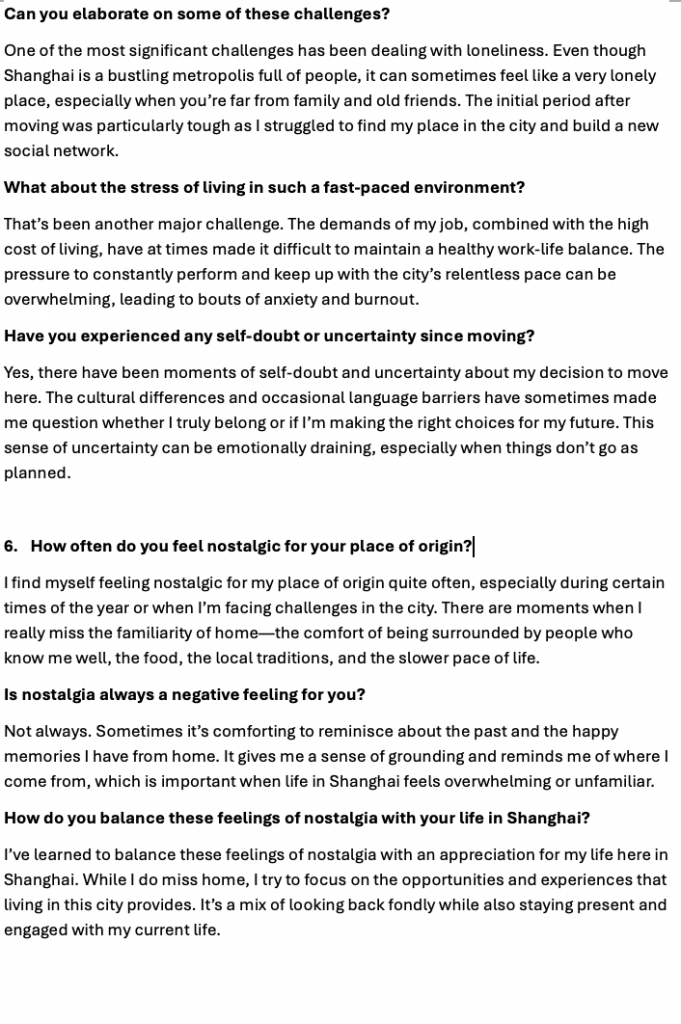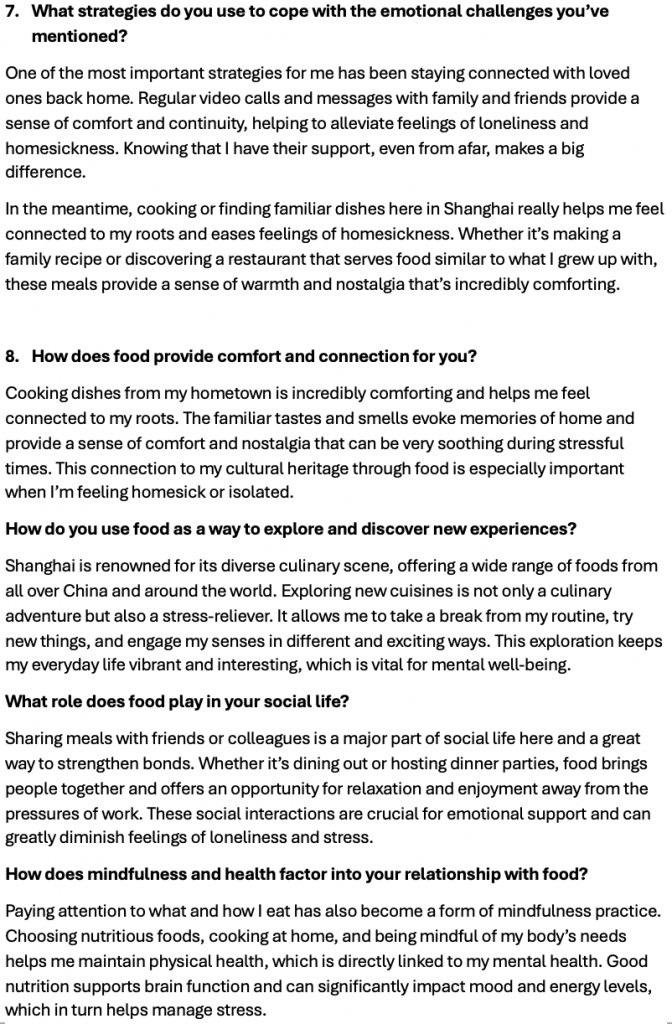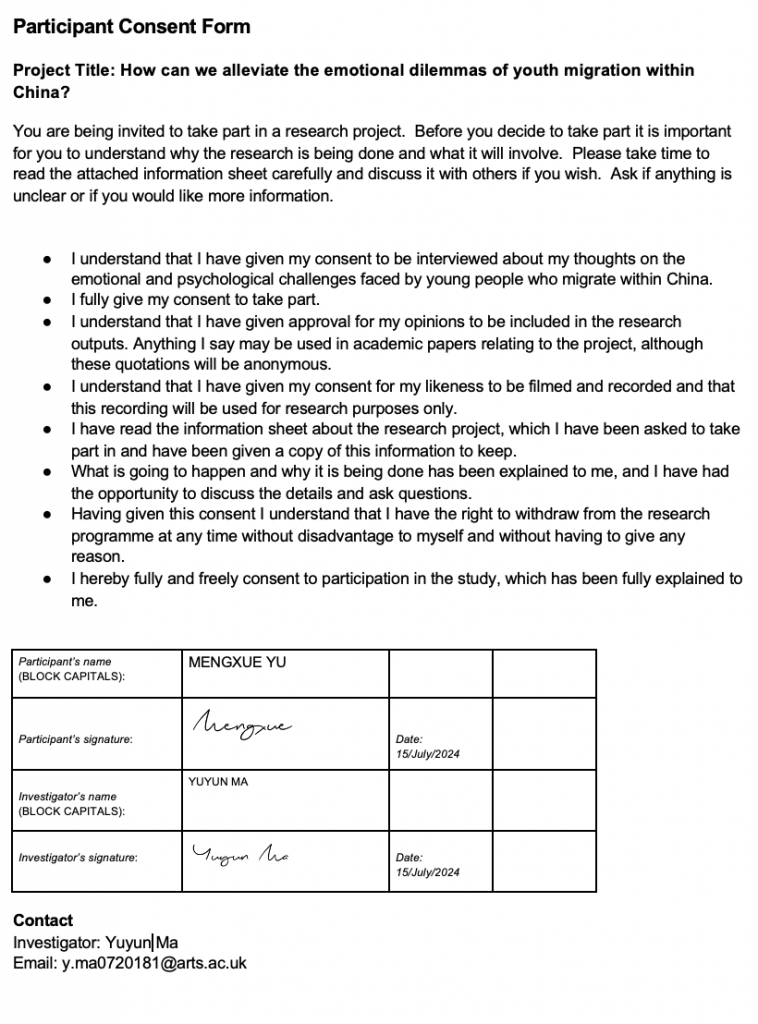For my independent study in July, I conducted several interviews with participants working in different cities to explore the emotional challenges they encountered in their lives. The first participant was a 25 year old female who worked in Shanghai and moved there three years ago. According to the participant’s consent form, I will not upload the full audio recording of the conversation and any pictures of the participant in this blog in order to protect the privacy of the participant. I will only translate and record key information from the interview in a transcript, which is attached at the end of this blog.
During the interview, we discussed the participant’s motivations for moving to Shanghai, her social connections to the city, her sense of belonging, her emotional and social challenges, and the ways in which she mitigated these challenges. Notably, the participant mentioned the role that comfort food played in her social life, which I found to be an interesting idea to use in developing my intervention, so I added questions about comfort food in the following interviews to find out if other participants felt the same way about the role that food or food culture played in alleviating their emotional challenges.
Here’s the important information mentioned in the interview:
Motivation to Move: She moved to Shanghai primarily for career opportunities, as the city’s status as a global financial hub offers a dynamic business environment and access to leading companies in her field.
Sense of Connection: Initially, she struggled to feel at home due to the size and pace of Shanghai. Over time, her sense of connection grew through building a social network, engaging with the city’s culture, and participating in local events. However, the fast-paced, transient nature of the city sometimes makes it hard to form deep, lasting relationships, contributing to feelings of instability.
Sense of Belonging: Her sense of belonging in Shanghai is mixed. While she feels at home due to her established routines and social connections, she sometimes feels like an outsider, especially due to cultural differences and language barriers. Her sense of belonging is fluid, evolving as she continues to adapt to the city.
Social Challenges: Establishing new social connections has been challenging, particularly due to the transient population. Many people she meets leave after a few years, which can be disheartening and makes it difficult to form lasting bonds.
Emotional Challenges: She faces emotional challenges such as loneliness, stress, and the pressure to succeed in a fast-paced environment. The initial adjustment period was particularly tough, and she continues to experience moments of self-doubt and uncertainty, especially when faced with cultural differences or language barriers.
Nostalgia: She often feels nostalgic for her place of origin, missing the familiarity of home, especially during challenging times. However, nostalgia isn’t always negative; it can be comforting and provide a sense of grounding. She balances these feelings by appreciating her life in Shanghai and the opportunities it offers.
Coping Strategies: To cope with emotional challenges, she stays connected with loved ones through regular communication and uses food as a source of comfort. Cooking dishes from home and exploring new cuisines in Shanghai provide her with a sense of connection and relief from stress. Food also plays a significant role in her social life, helping to strengthen relationships and diminish feelings of loneliness.
Mindfulness and Health: She practices mindfulness through her relationship with food, focusing on nutrition and mindful eating to maintain both physical and mental health, which helps manage stress and support overall well-being.
Interview transcript & consent form:
